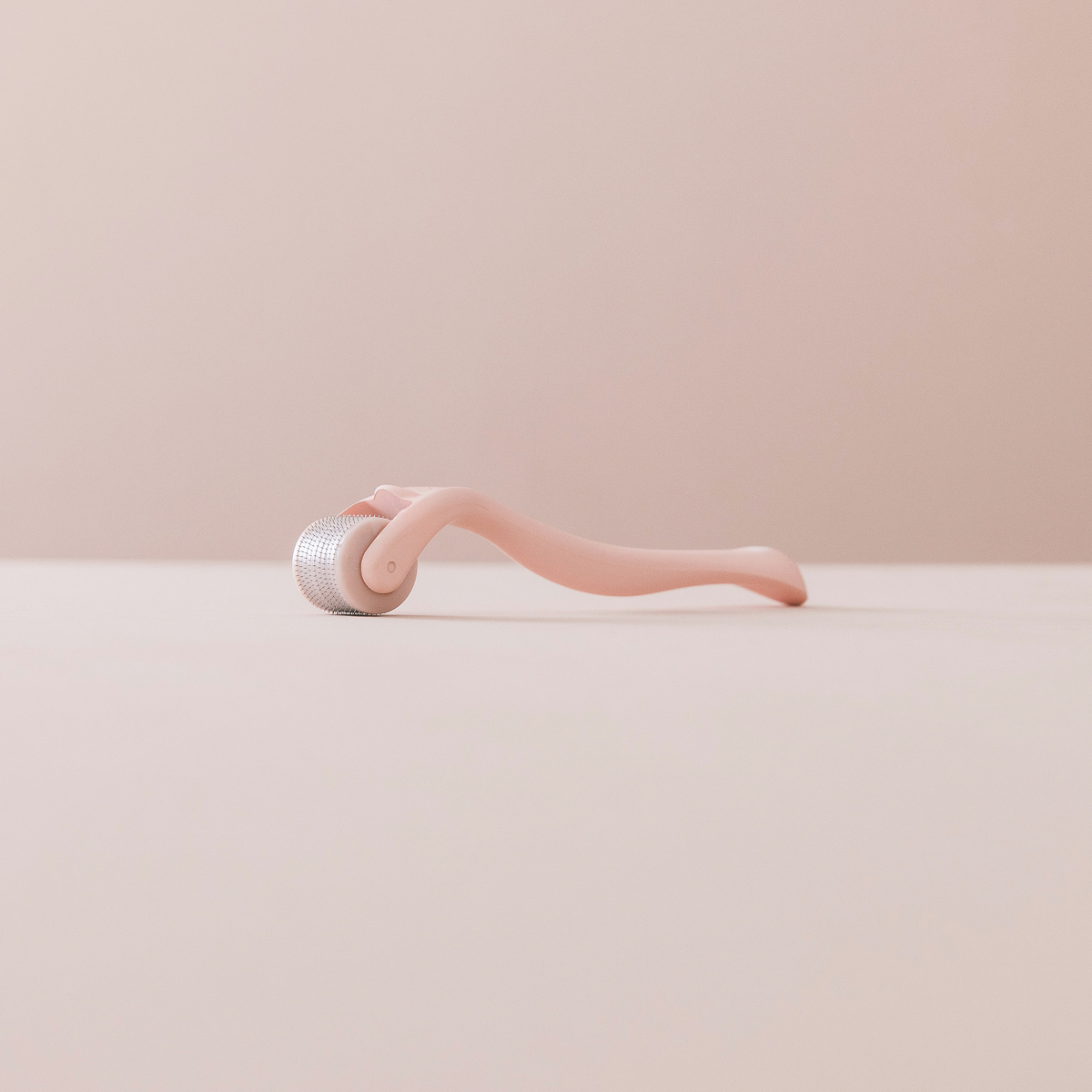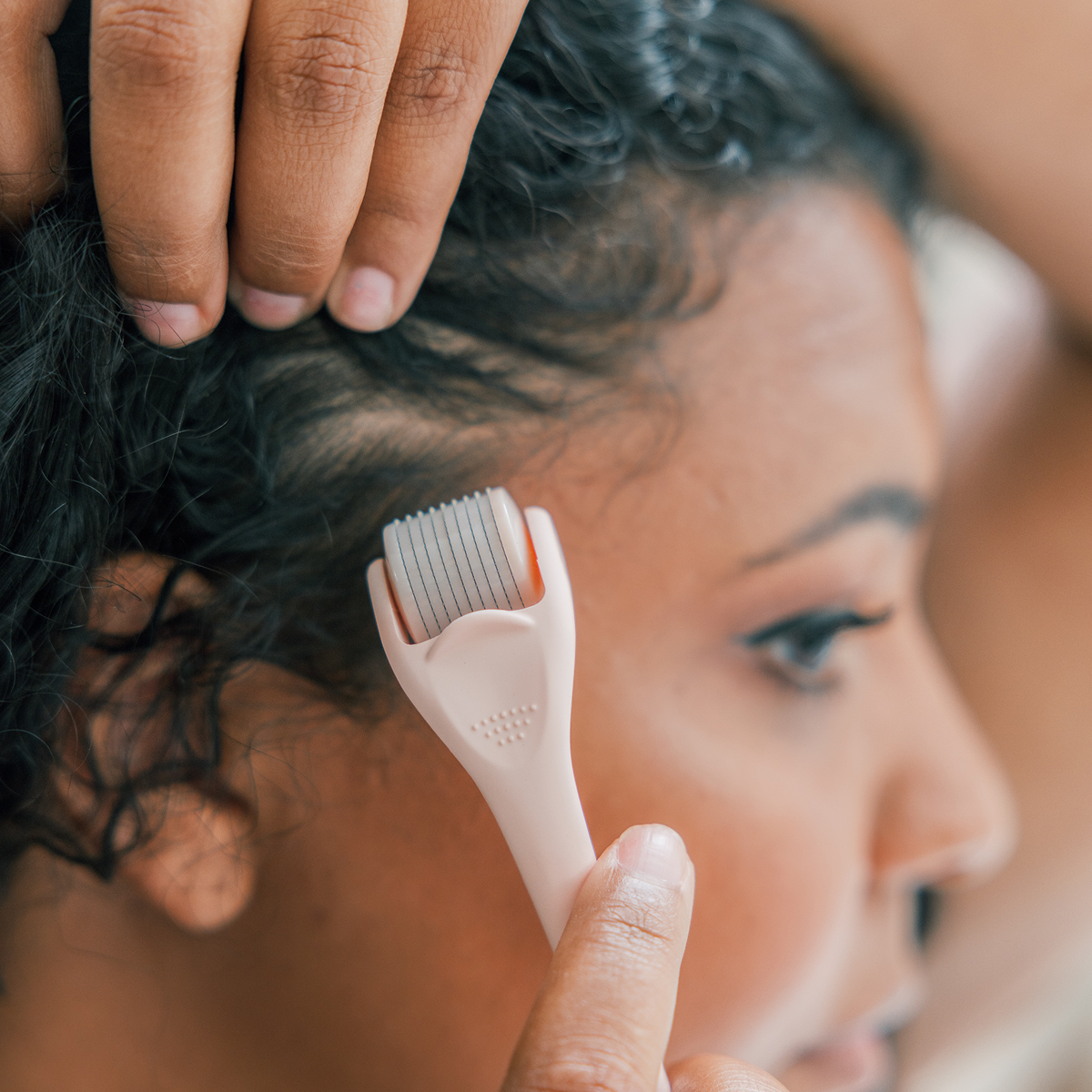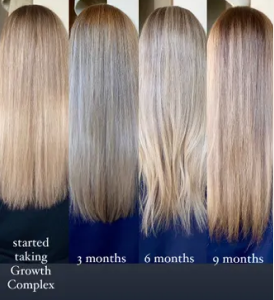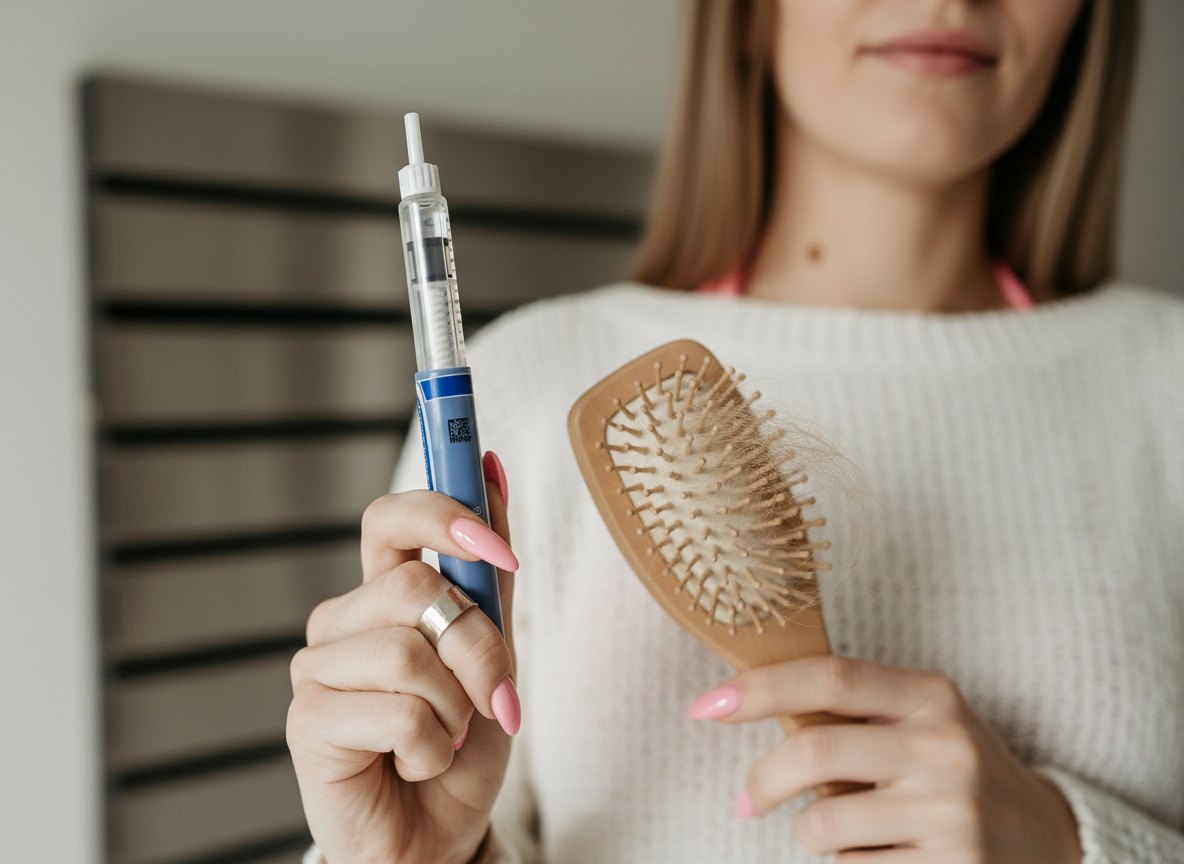Hair loss in women can feel isolating and confusing—especially when you're doing "all the right things" and your hair still seems to be thinning or shedding. While genetics, hormones, and aging often play a role, there are several lesser-known (and totally fixable) causes that might be flying under the radar.
Let’s dive into five of the most unexpected triggers of hair loss in women—and what you can do about them.
1. Chronic Stress (Yes, Even the "Quiet" Kind)
We often think of stress as shouting matches or panic attacks, but low-grade chronic stress—like always feeling behind, emotional suppression, or carrying invisible mental loads—can be just as damaging.
Stress increases cortisol, which can disrupt the hair growth cycle, pushing more follicles into the resting (telogen) phase. This leads to shedding weeks or even months after the stressful event or period. This condition is called telogen effluvium, and it's one of the most common causes of temporary hair loss.
What to Do:
- Practice daily stress-reduction techniques like deep breathing, journaling, or movement.
- Prioritize quality sleep and nutrition.
- Try adaptogenic herbs like ashwagandha or rhodiola (with guidance from a professional).
2. Crash Dieting or Nutrient Deficiencies
Sudden weight loss, low-protein intake, or restrictive dieting can starve your hair follicles of the nutrients they need to function. Iron, biotin, zinc, vitamin D, and essential fatty acids all play major roles in maintaining strong, healthy hair.
Unfortunately, hair is one of the first areas to suffer when the body senses scarcity—it diverts nutrients to essential organs first.
What to Do:
- Eat a balanced diet rich in colorful vegetables, protein, healthy fats, and whole grains.
- Get blood work done to check for common deficiencies (especially iron, ferritin, and vitamin D).
- Consider hair-focused supplements that include bioavailable forms of essential nutrients.
3. Hidden Thyroid Imbalances
Your thyroid controls many metabolic processes in the body, including hair growth. Both hypothyroidism (underactive thyroid) and hyperthyroidism (overactive thyroid) can lead to thinning hair or increased shedding.
Hair loss caused by thyroid issues is often diffuse—meaning it affects the entire scalp rather than specific patches—and can also be accompanied by dry skin, fatigue, weight changes, or mood swings.
What to Do:
- Ask your doctor for a full thyroid panel—not just TSH. Be sure to test free T3, free T4, and thyroid antibodies as well.
- Track symptoms alongside labs to get a full picture of your thyroid health.
- If needed, work with a practitioner to explore medication, dietary shifts, or supplements.
4. Certain Medications
Medications can be lifesaving—but they can also come with side effects, including hair loss. Common culprits include:
- Antidepressants (SSRIs)
- Blood pressure medications (beta-blockers)
- Oral contraceptives or hormone therapies
- Cholesterol-lowering drugs (statins)
- Acne medications (especially those containing vitamin A derivatives like isotretinoin)
If you’ve started a new medication and noticed more hair in the brush or drain, the two might be connected.
What to Do:
- Never stop a medication without talking to your doctor.
- Ask your healthcare provider if there are alternative medications or ways to mitigate the side effects.
- Support your body with proper nutrition and hydration to help offset potential effects.
5. Overstyling and Chemical Exposure
It’s easy to forget that everyday beauty habits—like tight ponytails, heat styling, or frequent bleaching—can damage the hair shaft and follicles. Over time, this physical stress can lead to traction alopecia or permanent follicle damage.
Even “clean” products can contain ingredients that strip the scalp of natural oils or disrupt its pH balance, especially if overused.
What to Do:
- Opt for looser hairstyles and use protective styles when possible.
- Limit heat styling and always use a heat protectant.
- Choose gentle, sulfate-free products and look for ingredients that support scalp health like aloe, argan oil, and rosemary extract.
Final Thoughts
Hair loss can be distressing—but it’s rarely without a root cause. The more you understand about what could be triggering your shedding, the more empowered you are to take meaningful action.
If you're noticing changes in your hair, start by tracking symptoms, reviewing your lifestyle and medications, and talking to a trusted provider. Often, addressing these lesser-known triggers is the first step toward restoring healthy growth and rebuilding your confidence from the inside out.
You’re not alone—and your best hair days aren’t behind you.



























